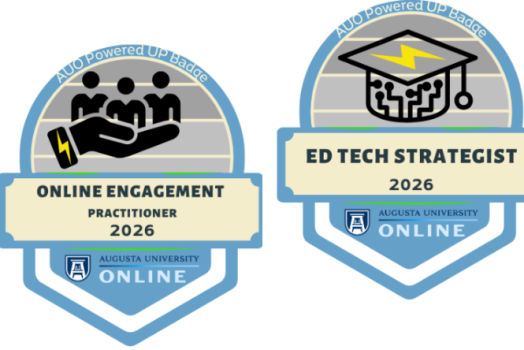AU Online is proud to continue the Instructor STAR (Special Thanks and Recognition) Program—a meaningful way for students to share appreciation for the instructors who make a...
As AU Online continues expanding its culture of connection and engagement across graduate programs, Yellowdig remains a key part of how we foster vibrant learning communities. To...
As artificial intelligence reshapes higher education, Dr. Natasha N. Johnson (EdD) is helping lead essential conversations about ethics, integrity, and academic freedom. Her...
As shared in our last CLT Update, the AU Online instructional design team has been implementing a series of course design enhancements across our D2L learning environment. These...
This term, AU Online is refining the points buffer in Yellowdig to better support student engagement and clarity. The buffer—extra points students can earn each week—gives...
A Growing Hub for Connection, Practice, and Professional Learning The Community of Learning & Teaching (CLT) has become AU Online’s central hub for faculty development...
A new AU Online Education Changing Courses to Change Lives (AUOE CCCL) initiative is underway, bringing together faculty, staff, leadership, and students to strengthen the quality...
As AU Online continues to grow, we are pleased to welcome three new members of the IDEA team! Yi Hsuan “Patty” Chiang joins AU Online as a Technology Coordinator, bringing...
Skills in areas such as analytical thinking, problem-solving and communication consistently rank among the top attributes employers seek in candidates — especially for leadership...
Lifelong learning is important in many professions, but teachers know that continuing to learn is particularly critical for those working in education. A study published in the...
 Augusta University
Augusta University








